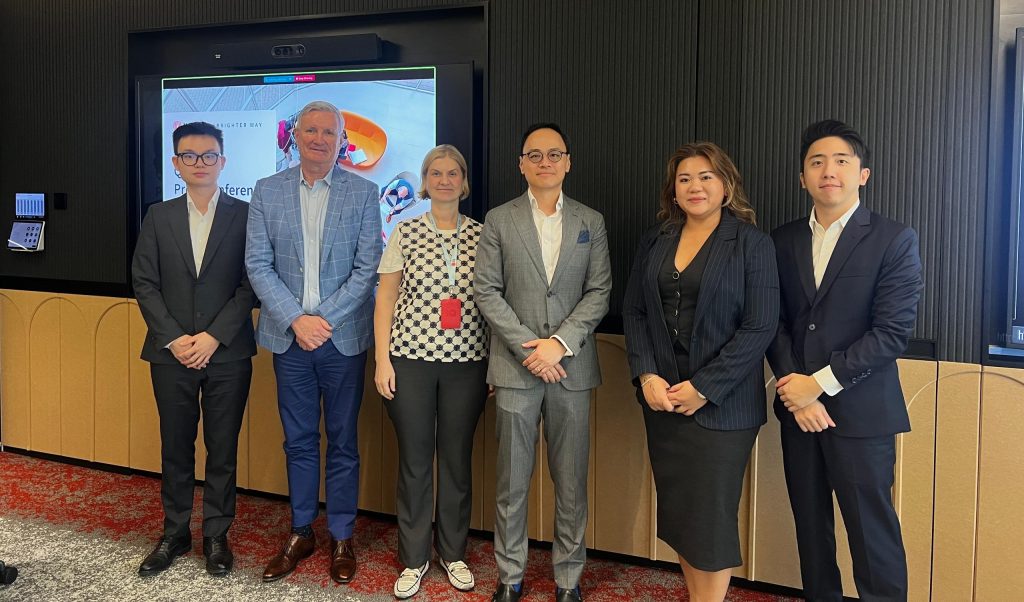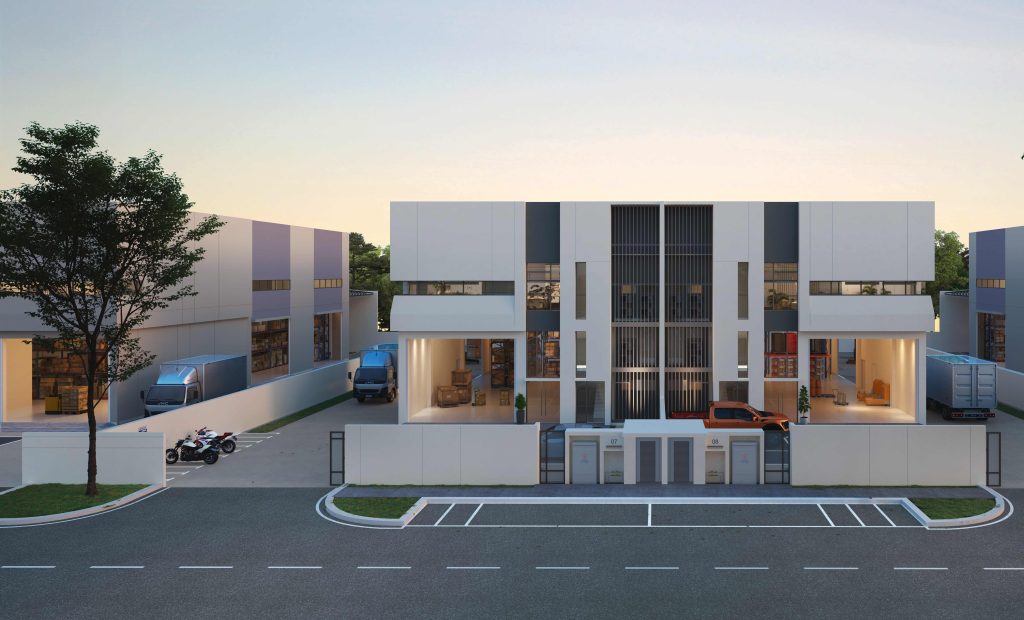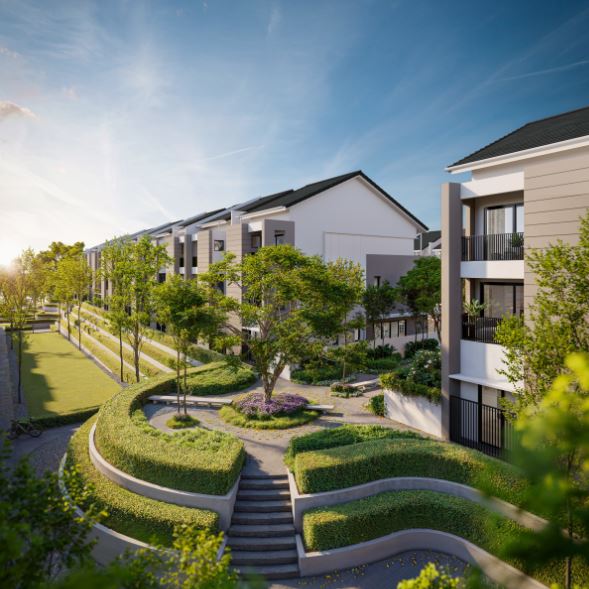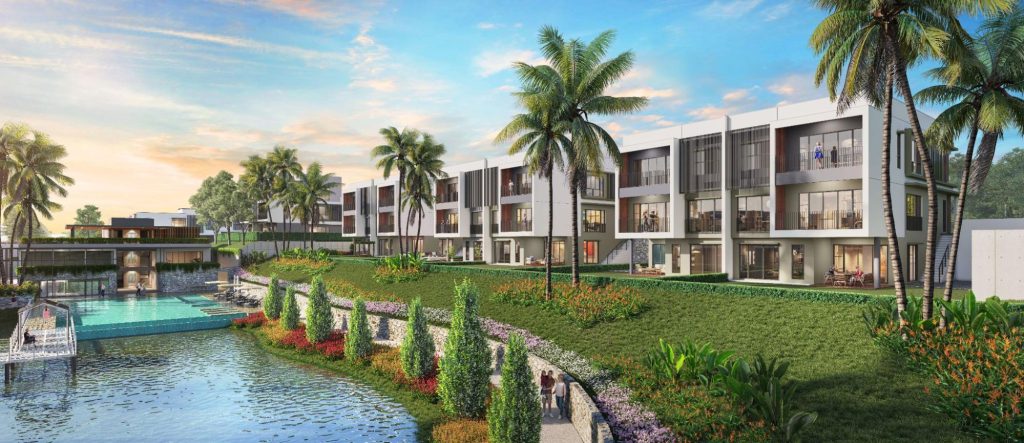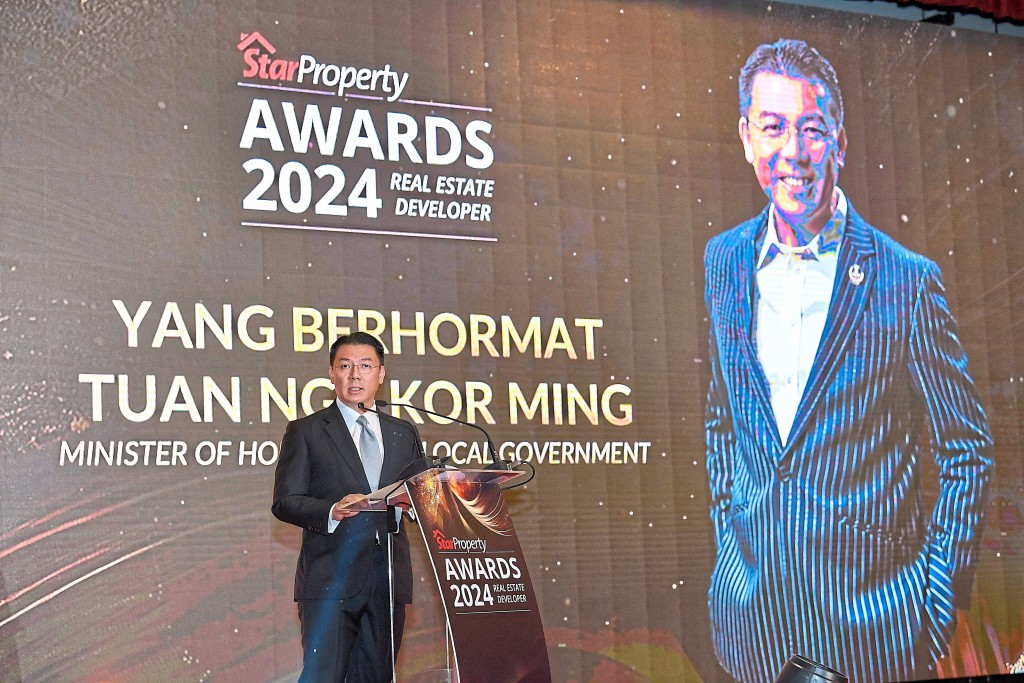
“The redevelopment of these sites could generate an estimated RM322.5 billion in GDP,” said Nga. — IZZRAFIQ ALIAS/The Star
A necessity for continued urban growth, says Nga
Urban redevelopment is essential for transforming cities, revitalising ageing infrastructure and ensuring sustainable growth. As cities expand and evolve, many urban areas face the challenges of outdated buildings, declining neighbourhoods and insufficient infrastructure. Redevelopment provides a solution to these issues, breathing new life into urban spaces and making them more livable and functional.
Acknowledging this, Housing and Local Government Minister Nga Kor Ming has been pushing forward the Urban Redevelopment Bill, designed to transform the cities of Malaysia. Already in its final stages, the bill is targeted for tabling in Parliament by the third quarter of this year. The Bill, which aims to rejuvenate urban areas affected by aged buildings or slums, has already been agreed to in principle by the Cabinet, said Nga at the StarProperty Awards 2024 Real Estate Developer gala dinner held at One World on May 15, 2024.
Nga highlighted that the Kuala Lumpur City Hall (DBKL) has identified 139 potential sites, covering over 526 hectares, suitable for redevelopment, rejuvenation and regeneration. Out of these, 91 sites have been deemed definitely fit for residential purposes.
"The redevelopment of these sites could generate an estimated RM322.5 billion in GDP (gross domestic product), transforming our city skyline and further spurring growth in our property sector," Nga stated
Why urban redevelopment is necessary
Many Malaysian decade-old buildings and infrastructure are beginning to fall into disrepair. Redevelopment projects replace or refurbish these structures, ensuring safety and modern functionality. This transformation not only improves the aesthetic appeal of urban areas but also enhances the quality of life for residents.
Redevelopment projects can significantly boost local economies. By attracting investments, creating job opportunities and increasing property values, these projects generate economic activity and prosperity. High-skilled job opportunities in construction, engineering and urban planning are created, contributing to overall economic development.
Moreover, modern redevelopment projects often incorporate sustainable practices, such as green building technologies and eco-friendly materials. By focusing on energy efficiency and reducing the carbon footprint, redevelopment helps cities become more environmentally sustainable, addressing climate change concerns.
“As the nation progresses, so are people’s aspirations. The demand for sustainability, compliance with Environment, Social and Governance (ESG), smart homes and smart cities, data-driven solutions and future proof spaces in the face of climate change are the agendas that will define the built environment in a not-so-distant future,” Nga said.
Redevelopment projects, he explained, aim to create more livable urban spaces. This includes developing residential areas, parks, recreational facilities and commercial zones that cater to the needs of the community. Enhanced public spaces and amenities improve the overall quality of life, fostering a sense of community and well-being.
Speaking on the sidelines after presenting the trophies to All-Stars winners, Nga emphasised that the proposed Urban Redevelopment Act would focus on four key areas: urban redevelopment, urban regeneration, urban rejuvenation and urban conservation. The Act aims to preserve heritage buildings and transform them into more livable and high-value spaces.
Nga explained that buildings, like humans, have a lifespan. "Once certified by professionals that it is beyond redemption or no longer suitable for human inhabitants, it is time for us to decide what is next for that old building," he said.
He assured that under the ministry’s guidelines and laws, the interests of property owners, developers and business opportunities would be balanced. The ministry practises an open policy, welcoming constructive opinions to serve the best interests of the country.
Nga also mentioned plans to amend the Housing Development (Control and Licensing) Act 1966. The current Act only covers residential properties and does not protect buyers, owners or developers of commercial properties. The updated law will encompass all property categories, including Small-office Versatile-office (SoVo), Small-office Home-office (SoHo), commercial properties and industrial parks, aligning Malaysia’s property market with those of Australia and Dubai.
However, Nga cautioned that in striving forward, the national urban development priorities must continue to align, integrate and localise the 17 Sustainable Development Goals (SDGs). “This is critical in making sure that our cities and nation as a whole progress along international markers and towards a sustainable living,” he said.
The priorities must include the preservation and restoration of historic and culturally significant buildings. Balancing new development with heritage conservation ensures that cities retain their unique character and history, enriching the urban experience.
As the journey progresses, Nga urged all stakeholders to form strategic partnerships and collaborate with the Madani government. "Our aim is to make Malaysia the centre of the Asean region and invite investors to make Malaysia the gateway to the region," he said, noting that Asean is poised to become the fastest-growing economic zone globally.
As the incoming Asean chairman, Nga expressed Malaysia’s readiness to become a hub for investment, education and tourism. "We hope the property sector will continue contributing to this vision. Let us work together to fulfil this national mission, where making Malaysia great again is everybody’s dream," he said.
Stay ahead of the crowd and enjoy fresh insights on real estate, property development, and lifestyle trends when you subscribe to our newsletter and follow us on social media.





